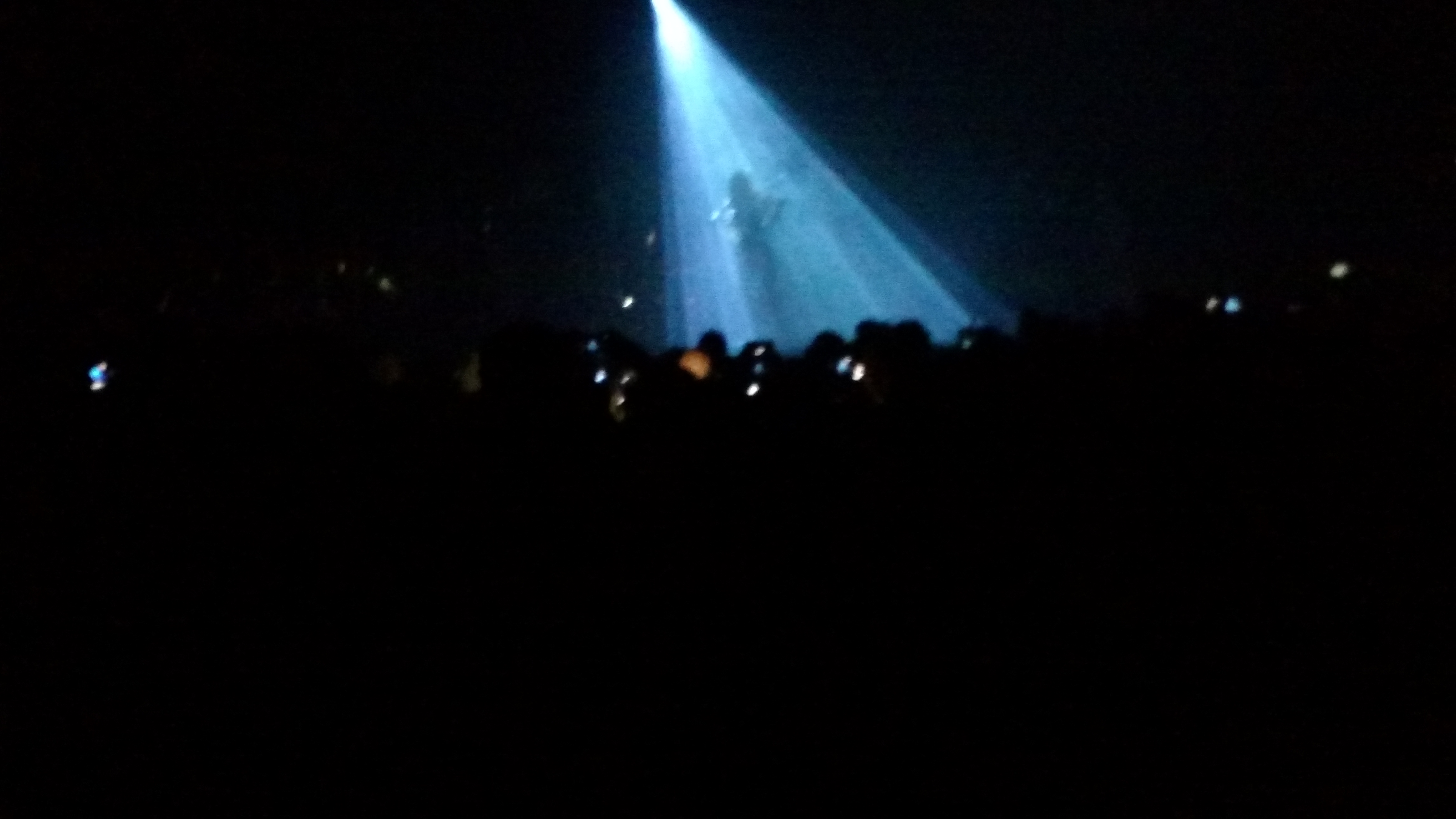So, I saw CONGREGATA by FKA twigs. There were three back-to-back sold-out shows at the Brooklyn Hangar, of which I availed myself of an opportunity to see the last one. I was in pretty good company, not just of the exceptionally well turned-out twentyoneoroversomethings who dominated the crowd, but, at least for a while, the composer Philip Glass, who stood a few paces to my right until I lost track of him. FKA twigs is, in short, to be taken seriously.
She explained, in an unassuming epilogue, that congregata means something like “gathering” in Latin and that she intended it to signify the coming together onstage of best friends: friendships, she was at pains to emphasize, that predated their collaboration. Something in the show borders, fairly obviously, on ritual, or ceremony, with its acts of procession and recession, consecration, and invocation. The classical elements are appealed to, fire and air especially, in the imagery, which is intense, outré, and sensual; there is a sense, in the show’s symbolic display, of the pansexual as sacrificial act.
For spectacle alone, CONGREGATA was (more than) worth seeing. The first image is of a violinist in a cone of light, the staking out, to both eye and ear, of a time and space sacred and apart. There are from there a circle of lanterns that frame the event, laser curtains and great shadows on the wall, dance and the movement arts from contortion to vogue, a flame of diaphanous fabric that licks the sky. She is herself a dancer of unforced limber- and suppleness; the effect, whatever the truth of the matter, is of innate quality rather than acquired skill; one wonders not how she learned to do that but that she does it.
Nothing about her made me want to categorize her or compare her to someone else. It’s an issue to which she seems, in a non-defensive way, to be sensitive: she rejected, in her epilogue, the idea that it was okay in pop to just take from other people, preferring instead the notion that predecessors and colleagues could be visibly inspirational. That she has been called “the queen of vogue” she takes exception to; the style has infiltrated her art, but she claims no mastery of it and brings onto the stage seasoned performers who could. I’ve seen her called r&b and in the same breath a new Kate Bush, which may or may not be internally consistent.
These are efforts, probably, to describe her by way of the familiar, for she is, in fact, hard to define, a popular artist of great originality, with the grace and wisdom to acknowledge both the friends she works with and the dance and musical artists who have inspired her. She is, herself, culturally complex, British, of Spanish-Jamaican parents. Her songs, and the music they emerge from, are, when you hear them in the stage show, the lifeblood of a phantasmagoria, matter-of-factly inclusive and ecstatically open. This seems to me to be the expression of a generational ethos, albeit within certain cultural boundaries, in which respect is routine and difference elided as anything that should divide one person from another. There is, as a result, something hopeful about CONGREGATA, and FKA twigs in her own right, of a future not yet here, but possibly arriving.
FKA twigs may be visited here.
